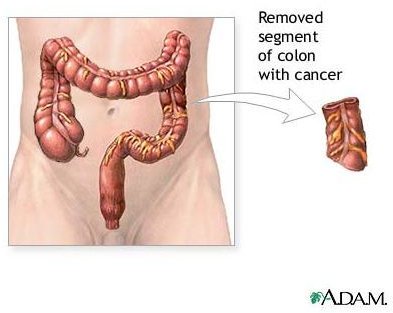Learn about Laser Treatment for Colon Cancer
Colon Cancer and its Causes
Colon cancer happens when abnormal cells divide uncontrollably in the colon. The body allows cells to divide to make other cells only
when the body requires them, but sometimes those cells continue dividing to make new cells unmanageably. This condition will result in the buildup of excessive tissue known as a tumor, which can be malignant or benign.
Colon cancer starts from the inner wall of the large intestine. A malignant tumor of the colon is known as colon cancer, which can be hazardous to adjacent organs and tissues. Benign tumors of the colon are known as polyps. These may turn into malignant tumors if they are not removed. Cancerous cells can spread to other organs such as the lung and liver, creating new tumors. This form is called metastatic colon cancer.
You need to realize that consuming foods high in fat may be a cause of this cancer. The by-products of fat metabolism can create carcinogens that are cancer-causing chemicals. In addition, researchers have found that the cancer can be inherited. If one of your parents has suffered from colon cancer, it might increase your risk of this cancer since chromosome damages can form colon polyps and colon cancer gradually. Click on image to enlarge.
Symptoms
Signs and symptoms of colon cancer may vary including:
• Lethargy
• Fatigue
• Weight loss
• Breathing difficulty
• Constipation
• Diarrhea
• Bloody stools
• Narrow stools
• Bloating
• Abdominal pain
Treatment
If you are diagnosed with this cancer, your physician may recommend undergoing cancer colon laser treatment instead of a surgical procedure. Laser light is applied to cut cancerous tissue with high level of accuracy, as it involves a focused laser beam. There are three types of lasers applied to treat cancer cells: argon, carbon dioxide (CO2), and neodymium (yttrium aluminum garnet [Nd: YAG]).
While argon laser and CO2 laser can only incise the skin’s surface to eradicate tumors without penetrating into deeper layers, Nd:YAG laser is capable to exterminate cancers in internal organs like cancers in the large intestine, uterus, and esophagus.
Laser-induced interstitial thermotherapy (LITT)
This laser therapy is also known as interstitial laser photocoagulation to treat the cancer. An endoscope, a thin and flexible tube, is inserted through the anus. The cancer surgeon will insert an endoscope to scrutinize the large intestine. The endoscope is connected with an optical fiber and inserted into a tumor. Laser emits light through the endoscope and optical fiber, burns off the cancer cells, and eventually exterminates them. As the treatment applies heat, cancer cells find it difficult to live. The therapy uses Nd:YAG laser because it can pass through a curved optical fiber into the targeted tissue.
Pros and Cons
Laser therapy has some pros when it comes to killing cancer cells including:
• Lasers emit the extraordinary heat that can sterilize the area near incision. It will decrease the possibility of infection.
• Lasers prove more accurate than scalpels because they touch other tissues minimally.
• Lasers can minimize pain, hemorrhage, and inflammation after treatment.
However, some cons of laser therapy include:
• Laser therapy is very expensive.
• There are a limited number of surgeons who specialize in laser therapy.
• Lasers occasionally cannot eradicate entire tumors so that the treatment must be done once again.
Follow-up Care
The cancer might reappear near the original area or in the lung or liver, becoming metastatic. To avoid this, you have to take follow-up tests like colonoscopies, chest x-rays, blood tests, and CAT scans of the abdomen. The cancer might also spread to distant organs such as the breast, ovary, or prostate. They need to be examined to anticipate further problems.
References
Medicinenet.com: What is Cancer - https://www.medicinenet.com/colon_cancer/article.htm#2whatis
Cancer.org: Lasers in Cancer Treatment - https://www.cancer.org/Treatment/TreatmentsandSideEffects/TreatmentTypes/lasers-in-cancer-treatment
Cancer.org: Factsheet - https://www.cancer.gov/cancertopics/factsheet/Therapy/lasers
Photo Credit
Image courtesy of the National Library of Medicine.
Disclaimer
Please read this disclaimer regarding the information contained within this article.
